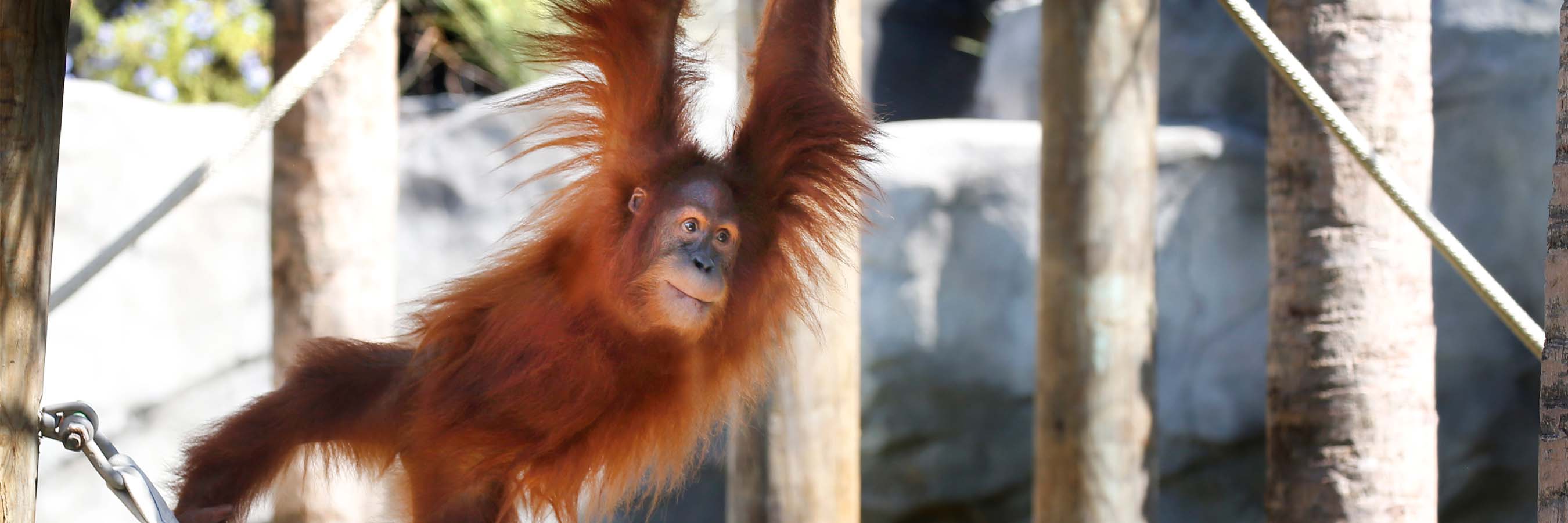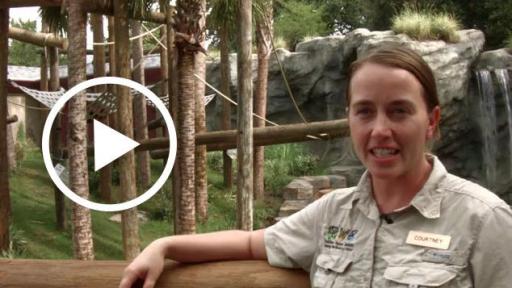NEW ORANGUTAN HABITAT DEBUTS AT AUDUBON ZOO IN NEW ORLEANS
PR Newswire, New Orleans, La., Nov. 9, 2015
Just in time for Orangutan Caring Week, Audubon Zoo has raised the curtain on its new habitat for the critically endangered primates.
Audubon’s family of Sumatran orangutans recently moved to their new Asian Domain home. The expanded exhibit provides three times as much space as their former facility in the World of Primates.
New features include a moat, a cascading waterfall, palm trees and climbing structures that soar up to 45 feet, significantly taller than before. From the highest point, the orangutans have a panoramic view of much of the zoo and even boats as they cruise along the Mississippi River.
“Orangutans are the largest arboreal animals on the planet,” said curator of Primates Courtney Eparvier. “And this gives them increased opportunity to exhibit their natural behaviors.”
The orangutans’ venue is the former home of Audubon Zoo’s two female Asian elephants, who will be moving to their new habitat in 2016.
There was a lack of foliage in the old orangutan exhibit and Eparvier said the addition of palm trees offers not only new climbing opportunities but also fronds for nesting.
New orangutan habitat debuts at Audubon Zoo in New Orleans @audubonnature #NOLA Tweet
Audubon Zoo has three Sumatran orangutans, which are critically endangered in the wild due to habitat loss. Feliz, who is 26 and came from Gladys Porter Zoo in Brownsville, Texas; her daughter, six-year-old Menari, who was born at Audubon Zoo in June 2009; and Menari’s father, 22-year-old Berani, who arrived from Zoo Miami.
The new exhibit includes large observation windows that give visitors a chance to interact with the playful apes. Menari occasionally places her hands on the glass as guests gather.
Historically, orangutans ranged throughout southeast and mainland Asia. Today, the Sumatran species of orangutan is found only in the northern part of the island of Sumatra in Indonesia.
Orangutan Caring Week is designed to draw attention to the species’ dwindling numbers. The orangutan population, now estimated at less than 25,000, faces daily challenges due to habitat loss.
Critical food sources are being destroyed to clear land for palm oil plantations. Palm oil is pervasive throughout the world’s food supply and cutting back on consumption may help save orangutan habitats by reducing demand.
Eparvier said everyone can help in orangutan conservation by checking labels on food products to determine if they contain palm oil.
Media Contact:
Frank Donze
Office: 504-212-5335
Cell: 504-232-7461
[email protected]





